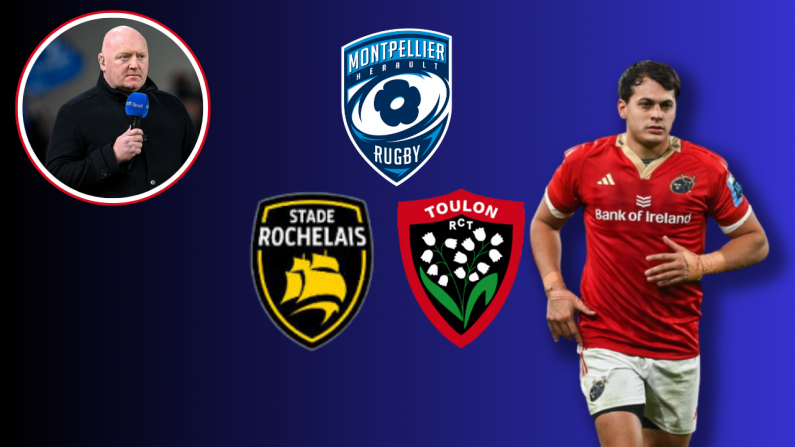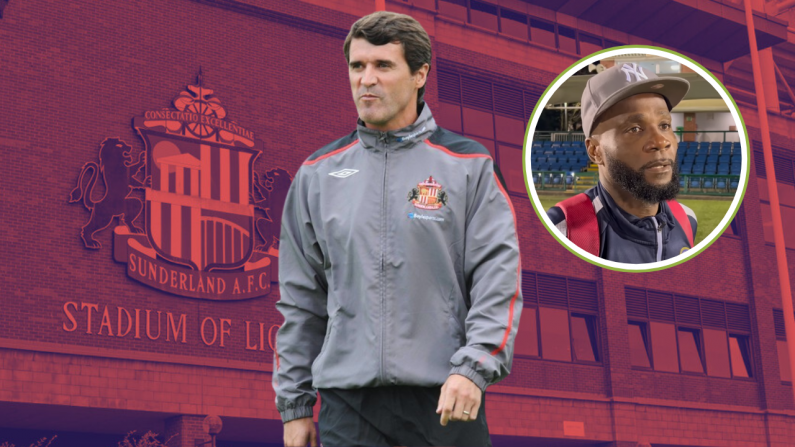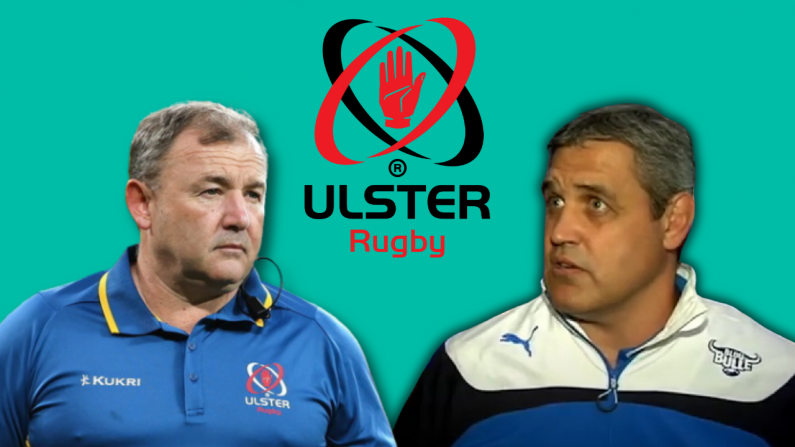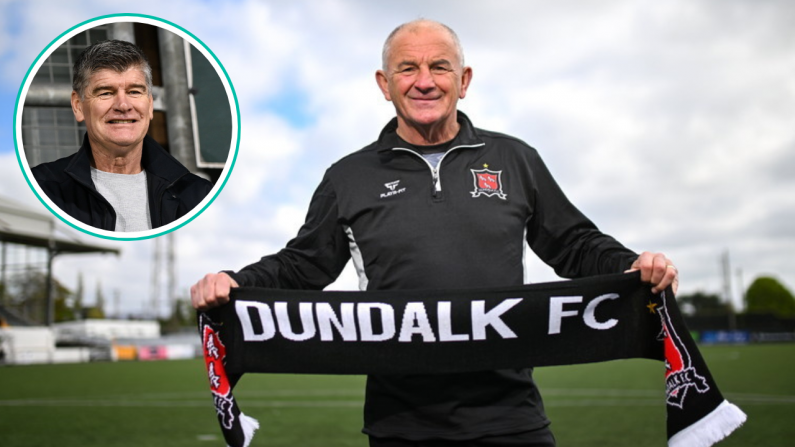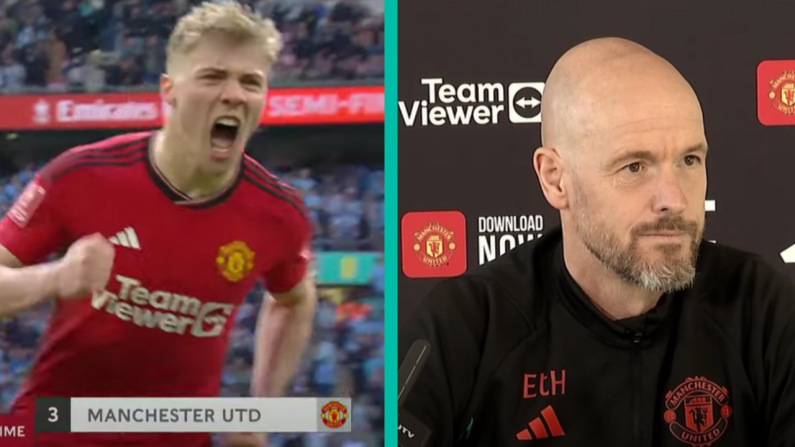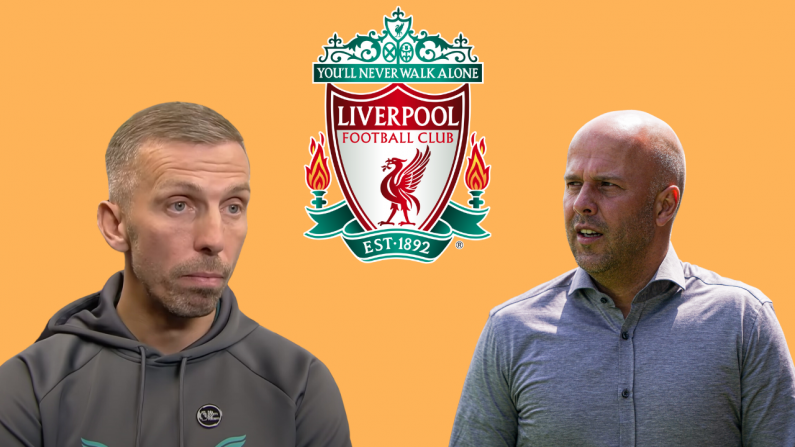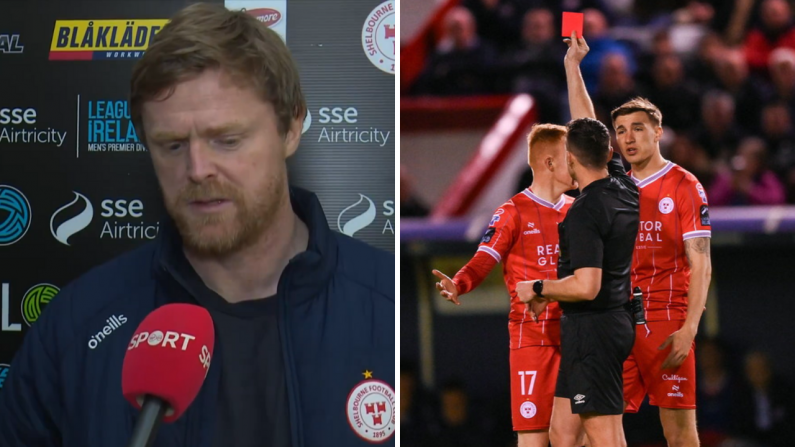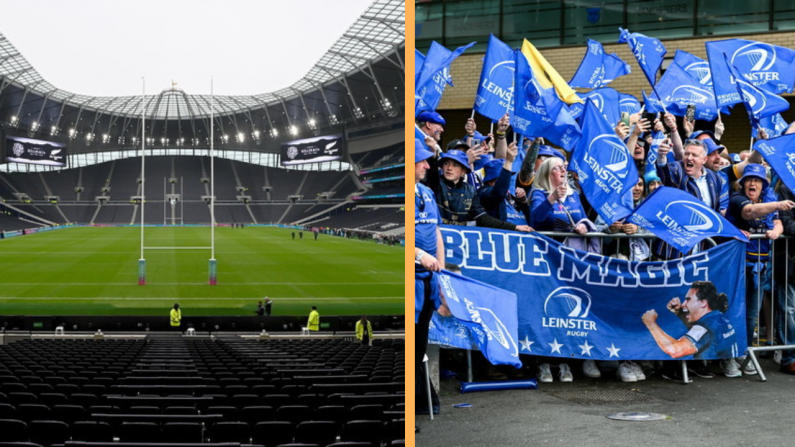September 2nd, 1997.
1,500 hardy souls corralled around a rain-soaked Tolka Park beneath a louring sky in what was designed as a celebration of Eoin Hand's career. The attendance is poor, with the turnout failing to cover even half of the insurance fee needed to stage the game. But the air is burdened by an absentee more glaring than the empty terraces, for Eoin Hand is lying in a hospital bed nearby, fighting for his life.
Acute pancreatitis is the diagnosis, an illness exacerbated by a long plight of seeking self-medication at the bottom of a pint glass. Eventually, there was a pain that Hand simply could not ignore, and he was wheeled in for emergency surgery with the stakes clinical and haunting: four out of five people failed to survive the surgery.
Hand proved to be one of the five, and on his next return to Tolka Park, he ran into Irish Press journalist, Charlie Stuart. "You're some bollocks Eoin. You didn't die. You had to go and survive, didn't you? I read reports of your death and was up half the night writing your obituary!".
"The best-natured bollocking of my life", muses Hand.
****
Hand ends that meeting with Stuart by apologising for having the cheek to live.
His new autobiography, First Hand, lays bare that life as one of the most remarkable ever led in Irish football. He was born in the Brazen Head in Merchant's Quay in 1946, and has now retired to Kerry. Between the journey from quays to Kingdom exists a rich, teeming tapestry.
Hand became Irish manager at the age of just 34, and took Ireland around the world in journeys that ranged between the arduous (the USSR), the unfair (Belgium) and the farcical (a South American tour that included a 7-0 hammering against Brazil, a victory against Trinidad that has been completely reversed in their history books, and a series of nervy diplomatic moments as British passport holders tried to pass through Argentina at the height of the Falklands war).
He did not, however, take them to a World Cup, needing nothing but a competent referee away to Belgium to qualify for a first World Cup in 1982.
When his time with Ireland ended in 1985, Hand took flight himself. The first stop was Saudi Arabia. Here he faced levels of dysfunction not even scaled by the FAI. His most promising forward was frequently exhausted owing to a proclivity for spending Friday nights masturbating in the desert; his winger was having an affair with his centre-back; one of his chief goalscorers had a habit of asking to be subbed after his first goal, resolving that he "wasn't going to do anything better than that". All this while Hand tried to reject the religious proselytising of his players without insulting Islam, and thinking of excuses to politely reject frequent invitations to public beheadings.
Later, Hand went to a post-apartheid South Africa in search of work, and found it with a team called Amazulu, but was ultimately chased out of his hotel at gunpoint: the team did not want a white manager. A spell running an Irish bar ended with an unprovoked glassing across the face, after which he came home.
Hand used booze to put ephemeral manners on the troubles that chased him home, but this was an uneasy coalition and ultimately it all caught up with him, leading to the dice with death during his own testimonial. Once he came out the other side, however, Hand found perspective.
This is admirable, as the book unspools tales of Hand's being shunned by those he had known and helped in the past.
Running out of money in 1997, he tried to arrange a testimonial. To do so, he went to visit Jack Charlton in the hope he would help, only for Charlton to grumble in response that he had enough players coming to him with the same request. This, Hand admits, was disappointing, given the help he had given Charlton when he took over: a two-hour meeting between the two at the Westbury hotel saw Hand recommend that Charlton retain Mick Byrne, cap John Aldridge and Ray Houghton, and offer some insights into the peculiar singularities of the FAI.
Hand, however, does not betray any bitterness when Ireland went to Euro '88 as he was exiled in the Middle East. It became known as the team that Jack built, even if Hand had capped many of them.
Jack got the break that I didn't, and that John [Giles] before me didn't. But that's football. Beating England was fantastic. And because of that, football went to areas it never went before in the country.
I really was delighted Ireland qualified. I'm Irish, I love soccer, I played for my country, and a lot of the lads I had got to go with Jack. so I was delighted, I really was. Nothing but delight, and I was excited as anybody when we beat England in Stuttgart. For God's sake, it was magic!
Who's to say if it was me, my whole life would be different. Okay, I'd be a wealthy guy, but maybe I would have done something stupid, and ended up in a car crash or God knows what. Who knows? It would have been great, but what can you do, you have to move on. It's what you have to do in the football world. Move on.
Hand's Ireland reign ended in unforgiving circumstances. Ireland were shredded 4-1 by Denmark on a Wednesday afternoon in 1985 in front of a small crowd at Lansdowne Road, at the end of which the RTE continuity announcer cruelly announced that "after the break, we will have more comedy with Cheers".
He admits to feeling a sense of relief once his reign had ended, as the pressure heaped upon him had become unbearable. This was exacerbated by the fact he lived in Ireland. "You could not do the job without getting abuse from yobbos, who might come up to you with when you were with your wife and say 'You're fucking useless, you're a fucking disgrace".
Criticism flowed from the media, too, most notably from one recognisable source.
Once he had finished with Ireland, Hand met Eamon Dunphy in a nightclub in Dublin. He approached him and poured his pint over his head, an act of retribution for the "hell that he had put me through". Hand and Dunphy grew up together in Drumcondra, and played together with Ireland. After their playing careers ended, they diverged: Hand for Ireland; Dunphy for the media.
The relationship soured badly as Dunphy routinely criticised Hand, with one unflattering column referring to the Irish manager as the "Richard Nixon of Irish soccer". Hand earned damages from the Sunday Tribune as a result. Hand contends that Dunphy used Hand's profile as a way of furthering his career:
He used me as a ladder, and not just me, but it started with me and Liam Brady. He used to level very harsh criticism at me, coming from a guy I had grown up with in Drumcondra. I didn't have any respect for him because of it. You can make your career in better ways than that. In another way I should be honoured: he did the same with Pat Kenny, John Hume, Mary Robinson, Platini, and with every subsequent Irish manager.
I played with Eamon, I knew his character, I played against him, I knew what he was like. So I was very, very disappointed. It was horrible: because of his continued stuff, my son's tyres were slashed at school. I was really disappointed in him as a person.
He created this word called "decentskinsmanship", that was his way of saying that all the other journalists were hacks, and that's why they wouldn't expose me as a bad manager. This kind of shit. Eamon came on the scene to try and make a name for himself, and he did make a name for himself. But I'm sorry, there are better ways of going about it.
Such strife no longer meets Hand, and he is struck by the level of goodwill held toward him by much of the Irish football public.
I feel very privileged to have had the role. I have experienced a hell of a lot of goodwill, which is a huge change to what I expected when I finished when I thought the whole world was against me. And the relationship I had with the players. The other night I rang Paul McGrath and asked him to come along to the launch, and he told me, 'Eoin, if you want me to be anywhere, I'll be there', which is lovely.
In light of reading the book, it becomes clear just how difficult Hand's job with Ireland was. He was managing the side part-time along with Limerick and later St Pat's, and had to contend with an "amateurish" FAI. One example: the FAI HQ shut up shop at 5.30pm on Friday evening and did not reopen until Monday morning, meaning there was nobody to call around at the end of club fixtures on a Saturday to ensure Hand's squad were fit to meet up on Sunday evening.
It fell to Hand to attend the game which featured the most Irish players, and then use the club secretary's phone to ring around the grounds to ensure his players had come through unscathed, and if not, to call up some replacements. "Bobby Robson couldn't believe it when I was sitting with him at Tottenham when I told him, 'I'm off to the secretary's office to ring around'. I had to do it because if I didn't, nobody else would!"
The book, says Hand, was not conceived as a way of putting on record the tribulations attached to his job.
It was a real honour for me to be given the job at 34. That was the situation, and I went about it in a straight-forward, practical way. What I'm trying to do in the book is to say, 'this was Irish football, this is part of the development of it'. This is my life, and I was trying to be as honest as I could have been, without bullshit. I'm just saying it as it was.
That Hand would ultimately work for the FAI might surprise many, but after recuperating from illness, he joined the organisation as a career guidance officer. As part of his role, he helped ensure the schoolboy clubs of Ireland were properly-compensated when the biggest clubs in England picked up their best players. It came as a surprise, then, when his contract was not renewed as the FAI made cutbacks in 2012. A legal battle ensued, with Hand's relationship with Irish football officially ending in defeat at the Labour Court in 2013.
As a result, he describes himself as "persona non grata" within the Association. He no longer receives tickets to home internationals, as was once his privilege, and in September last year, a planned piece for the match programme against Georgia celebrating his role in the victory over France in the 1974 World Cup qualifiers never appeared.
I was told that was a board decision, but I couldn't understand it while I was bringing in money to the game. That wasn't right, and because I challenged them I'm persona non grata. Because I'm a former international manager I used to get complimentary tickets to home international games, but now, I won't go.
I find that hurtful. But I don't need a badge of approval from one person. I've got the Irish soccer public, and I know the goodwill I have among them.
That goodwill was evident in those autumn days of 1997, as Eoin Hand picked himself up and walked out of the hospital room in which he had been administered the last rites.
You realise there is a good world out there. The amount of get-well cards, and visitors, and the amount of good wishes I got...so I came out saying, well, by God I won't have a problem again in my life, I'll have a challenge. And there's a hell of a difference.
I put things in their proper perspective by looking back and saying, 'It was what it was. You gave it your best shot. Did you make some mistakes? Of course you did. Everybody makes them. But it's about how you recover from them. And there's no bigger problem than being six feet under'.
First Hand: My Life And Irish Football by Eoin Hand with Jared Browne is published by Collins Press and is available now.


